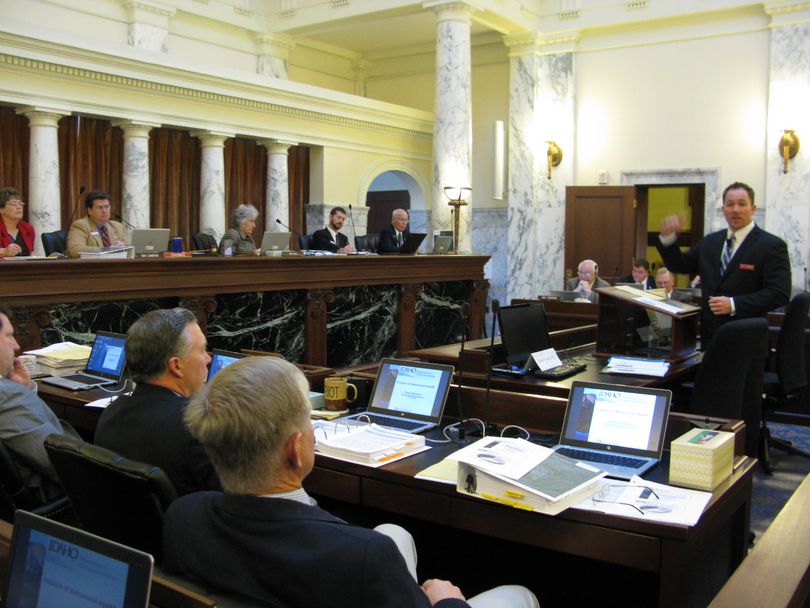JFAC reviews state’s ‘transforming’ community mental health system

Legislative budget writers, continuing their hearings this week on Health & Welfare division budgets, are looking this morning at mental health, substance abuse treatment and related topics. Mental health services, including both adult and children’s mental health, is recommended by Gov. Butch Otter for $32.9 million in total funding next year, including $23 million in state general funds. That goes 62.5 percent for adult mental health services, delivered primarily through seven regional, state-operated community mental health centers; and 37.5 percent to children’s mental health, which provides assessment and evaluation, clinical case management, hospitalization,residential treatment, and therapeutic foster care for children with serious emotional disturbances.
Next year’s budget request, in total funds, is for a 5.2 percent increase. But funding in this area in Idaho has dropped sharply in recent years. In fiscal year 2007 the total appropriation for mental health services was $42 million. It’s dropped by a quarter since then.
Ross Edmunds, administrator of the Division of Behavioral Health for Health & Welfare, said the state has been transforming its community mental health system to focus on local input and influence, integrated treatment, and eliminating gaps in services. It’s moving to a managed-care model for behavioral health benefits, which he called “a huge transformative step in moving the system forward.” Atthe same time, the national health care reform law will soon require that all insurance cover mental illness just as it covers physical illness. Though most states have long required such “parity,” Idaho hasn’t in the past.
Edmunds said, “I don’t know exactly what that increased coverage will be like … there’s several decisions before the Legislature this year. … But certainly we expect more individuals to have insurance coverage, and the requirement is that those insurance plans have a behavioral health benefit included. So when I look at the system, I really think the majority of people will have insurance, and that they will receive the clinical treatment services that they require through their insurance services. But there’s a big gap, there’s a big piece missing … and that’s what I call recovery support services.”
Many of those who receive the services through the state are homeless, he said. “They often have very few resources, and it’s a real challenge, because if they don’t have those basic life needs met – shelter, food, clothing and relationships, we’re really not setting them up for success. We’re setting them up to perpetuate the cycle and stay in our system.”
The budget request this year includes $466,900 in one-time “seed money” for new regional behavioral health boards in each of seven regions of the state. There also will be legislation proposed, Edmunds said, to “create a system … in which those recovery support services are administered at a local level.” He said, “Benefits … will be controlled by insurance ... but what we can do is present them with an opportunity to look at those recovery support services and how best to administer those on a local level.”
